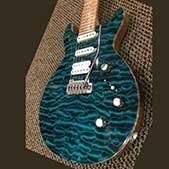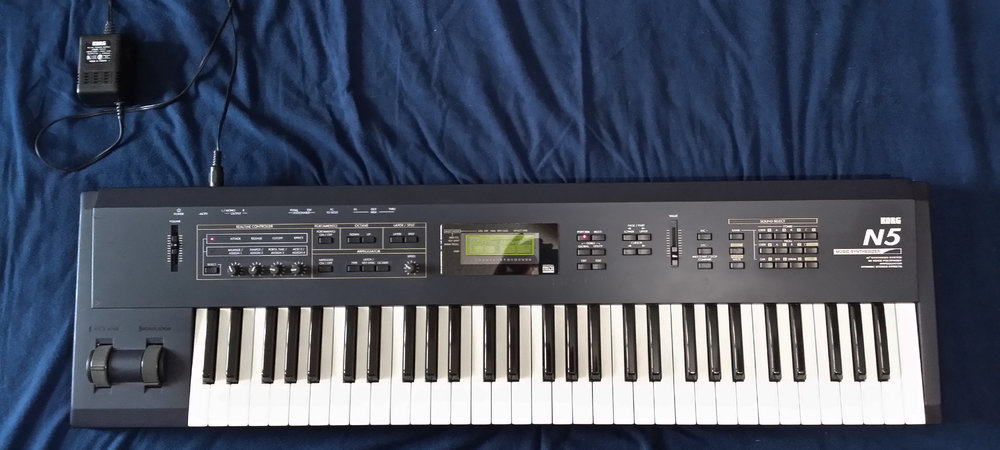-
Posts
14,194 -
Joined
-
Last visited
-
Days Won
60
Everything posted by craigb
-

Does anyone else prefer hardware MIDI modules to software synths?
craigb replied to Notes_Norton's topic in The Coffee House
? -
Macs now support Windows!!! ?
-

Does anyone else prefer hardware MIDI modules to software synths?
craigb replied to Notes_Norton's topic in The Coffee House
Not sure which one that was. I had three different Korg's (including both the keyboard and rack versions of one). I liked my Korgs! ? An N5: And an MS2000 (and MS2000R - the rack version): And this little guy: -
*Crowd* "Play Vivaldi!!! Play Vivalidi!!!" ? ?
-
Good to hear they "saw the light" Larry! I'll stop looking for my password now. (Which would have definitely only resulted in my making one flaming post before I was banned as well! ?)
-
Which part? ?
-
Man I like that song! ??
-
F***ing lowlifes!!! I just received a tech. alert email that ransomware attacks on hospitals has increased dramatically as [those that need to be tortured and dismembered] are taking advantage of the virus! Unbelievable! ? As far as I'm concerned, that makes them all guilty of murder (or, at least, attempted murder) and they should be hunted down in the same fashion...
-
Then, when they think you're not looking... They post in your Facebook account! ?
-
That is true. I'm hearing that, outside of the elderly (especially with preexisting conditions), the most at-risk groups will be smokers (of any kind) and the obese. However, I'm also hearing that the panic created will cause much worse issues than the actually, highly survivable virus. Just combine all the current over-buying with a lack of production and the inability to replenish stock due to lock-downs (potentially between states, which is being considered here), and your basic idiot will be off the rails in a couple of weeks. That said, even if it does somehow make THIS scary list, it still won't have as much of an effect on the World's population as War and Politics has had.
-

Who makes really great laptops for audio these days?
craigb replied to John T's topic in The Coffee House
*PA Voice* "Paging Jim Roseberry, please come to the Q&A booth!" ? -
Well, as Stalin said, "One death is a tragedy, a million deaths is a statistic." All I know is that, if I'm five times more likely to die from a snake, AND I was one to freak out and had to be ultra-prepared, I would be doing my best to have anti-venom on-hand and avoiding any place where there's the slightest chance of a snake being. When you're dealing with something that has a worldwide survival rate of 97.2% (practically 100% if you're young and/or healthy), then I have FAR more important things to worry about. Yes, SO FAR, less than 6,700 people have died (who knows how many would have died from other reasons within a few months - most were elderly and already sick), but that's since November. This is only about 700 more than those who have committed suicide over the last two days! I'm pretty sure an alarming percentage of those were teenagers who have given up hope. As far as I'm concerned, THAT is a much bigger issue that people should be trying to fix!
-
Those are too holy to work on. ? (See what I did there? ?)
-
This. ^^^ The virus doesn't make me nervous at all, but a bunch of hysterical misinformed people scares the heck out of me!
-
I have a term for the typical American beer (think Coors or Budweiser - or, Sewers and Buttwiper): I call them "***** on the beach" (aka, F***ing close to water!). Me, I prefer:
-
Sounds like a good name for a band! "Ladies and Gentlemen, please welcome... Control Z!!!" ?
-
Everything vibrates, so everything is music. Which means that EVERYTHING is music related! ?
-
As of right now, the highest total I can find is 6,687 deaths total since the start of the outbreak. The estimates from last June put the population of the World at 7,577,130,400. So, with 360,000 people being born each day, and about 151,600 dying each day (excluding those affected by COVID-19), that's 208,400 new lives being added to that total every day... Guessing that the last estimate was about three quarters of a year ago, let's add 275 more days' worth of growth to that figure. That gives us 57,310,000 additional people to add. Here's the math: 7,577,130,400 + 57,310,000 = 7,634,440,400 people currently alive Worldwide. Now subtract the half-a-billion that UN Agenda 21 implies and we get 7,134,440,400 people that somehow must be removed from the population total. If we take the 6,687 COVID-19 deaths into account, then there's "only" 7,134,433,713 to go (plus the daily additions and assuming birth rates don't go up from sequestering everyone inside their houses with nothing to do). Considering many scientists believe the Earth can only handle between 9 and 10 billion people at max capacity, this virus better kick things up soon! Since the first case was back in November of last year, overall, we're now up to about 55 deaths per day. This needs to increase by about 208,350 deaths per day just to stop population growth! Hey, I'm open to anyone who has numbers that truly show this to be the horrific, potential "Plague of the Millennium!!!" that it's being taken as. Actually, as I look at the birth and population records I just looked up along with what scientists say is the maximum capacity for humans on this planet, I could almost make the argument that we DO need to reduce the numbers a lot! (No, I won't.) All of that said, I hope everyone here (and their friends and families) stay safe!
-
*Pffftt!!!* He's from the South! They don't need to shave! ?
-
I never read or watch the "News" (i.e., mass media). Of course, now, with net neutrality gone and the "FANG's" (Facebook, Amazon, Netflix & Google) censoring things, it's getting far more difficult to find out what's really going on!
-
She wasn't!
-
Just don't go whole hog in China. Rumor has it that drones have been infecting pig farms there and 40% of all the pigs in China have been wiped out.








